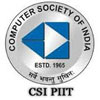Ever wondered how your phone flawlessly compresses audio or how MRI machines produce such clear images? The answer lies in signal processing—an essential concept in electronics and Electronics engineering that powers the technology we rely on every day. Whether you’re a student at one of the top electrical and electronics engineering colleges in Mumbai or just starting your tech journey, mastering signal processing can open doors to exciting career opportunities.
Introduction to Signal Processing
At its core, signal processing involves analyzing, modifying, and interpreting signals—like sound, images, or data—to extract valuable information. It plays a pivotal role in various fields, from telecommunications and audio processing to cutting-edge medical technology. For students in electronics and Electronics engineering, understanding this discipline isn’t just helpful—it’s essential for staying ahead in today’s tech-driven world.
Types of Signal Processing
Signal processing branches into two main categories:
Analog Signal Processing
Analog signal processing deals with continuous signals. Think about radio broadcasting, where sound waves are transmitted without conversion into digital formats. Applications include:
- Audio amplification systems
- Analog filters used in communication systems
Digital Signal Processing (DSP)
Digital Signal Processing, or DSP, involves converting analog signals into digital data for processing. It’s the backbone of modern electronics, making it highly relevant for students in Electronics engineering colleges in Mumbai or anyone looking for Electronics engineering classes near me. Common applications include:
- Noise cancellation in headphones
- Image enhancement in smartphones
Key Concepts in Signal Processing
Understanding signal processing starts with a few foundational ideas:
Sampling
This is the process of converting a continuous signal into a sequence of discrete values. It’s crucial in digital audio systems and telecommunications.
Quantization
Quantization rounds off the sampled values to a finite set of levels, allowing digital systems to process them efficiently.
Filtering
Filtering helps in enhancing useful signals while minimizing unwanted noise—vital for clear audio and data transmission.
These concepts are fundamental for anyone diving into electronic Electronics engineering, especially in fields like multimedia, telecommunications, and medical tech.
Applications of Signal Processing in Electronics
Signal processing finds its way into numerous high-impact applications:
- Telecommunications: Signal compression enables faster and clearer data transmission.
- Audio and Video Processing: Noise reduction improves sound quality in devices like smartphones and hearing aids.
- Medical Imaging: Techniques like MRI and CT scans rely on signal processing to produce clear diagnostic images.
For students from top engineering colleges in Navi Mumbai for Electronics engineering or those enrolled in Elecronics engineering classes in Panvel, mastering these applications can lead to exciting opportunities.
Signal Processing in Electronics engineering
Signal processing isn’t just for electronics—it intersects heavily with Electronics engineering. Algorithms play a critical role in analyzing and processing signals, making programming skills essential. Whether you’re coding audio enhancement software or developing cutting-edge AI applications, understanding signal processing can give you a competitive edge.
For those enrolled in top computer classes in Mumbai or studying at bachelor of computer science colleges in Navi Mumbai, integrating signal processing knowledge with programming can set you apart in the tech world.
Educational Pathways and Resources
If you’re ready to dive deeper, here are some resources and educational pathways:
- Electrical and Electronics Engineering Colleges in Mumbai: Many institutions offer specialized courses in signal processing.
- Top Colleges for Electronics engineering: These programs often integrate signal processing modules into their curricula.
- Electronics engineering Classes in Mumbai: Look for workshops and certification programs that offer hands-on experience.
Additional resources include online platforms like Coursera, edX, and specialized textbooks such as Understanding Digital Signal Processing by Richard G. Lyons.
Career Opportunities in Signal Processing
A specialization in signal processing can lead to a variety of career paths:
- Telecommunications Engineer: Design and optimize communication systems.
- Multimedia Developer: Work on audio and video technologies.
- Robotics Engineer: Implement signal processing for sensory data and controls.
Many of these roles are available to graduates from the top 20 Electronics engineering colleges in Maharashtra, making it a promising field for aspiring engineers.
Conclusion
Signal processing is the backbone of modern technology, blending theory and practical application across electronics and Electronics engineering. Whether you aim to work in telecommunications, medical tech, or multimedia, mastering this skill can set you apart. Dive into educational resources, explore courses, and consider specializing in this game-changing field.




